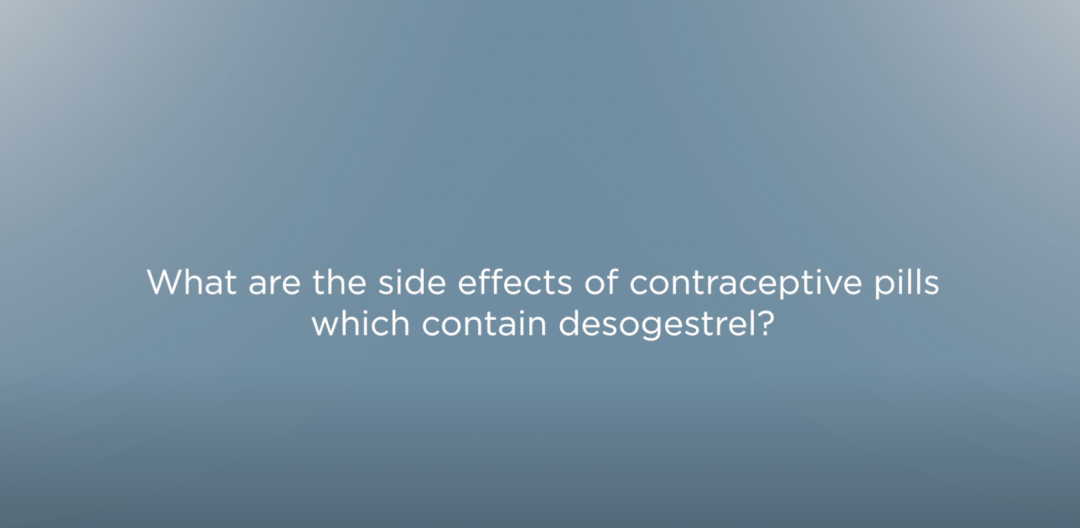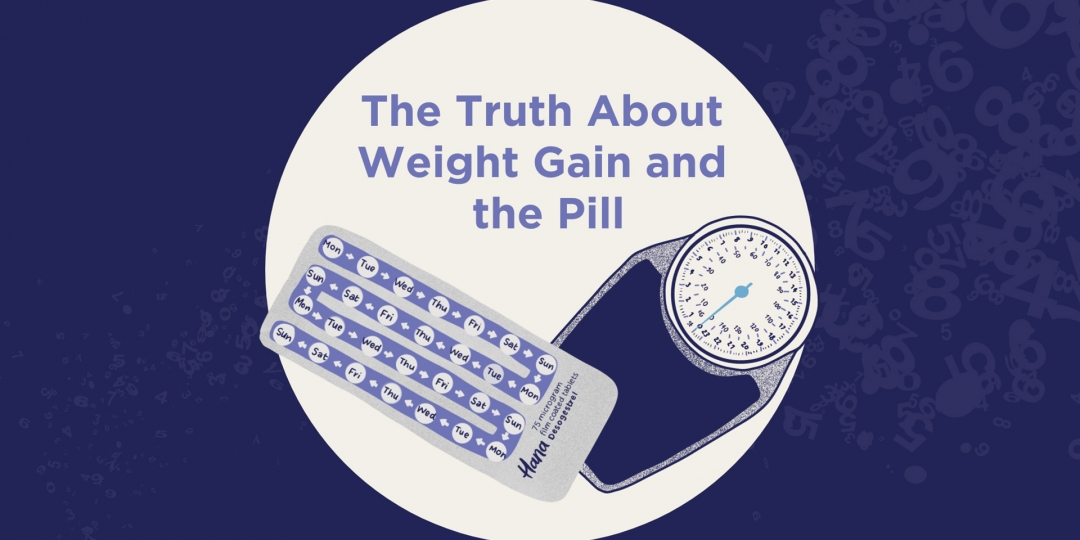“Does the pill make you fat?”
You may have heard that the pill can cause weight gain. We understand that this is a concern for some people and may even put you off taking the pill altogether. So we’ve done our best to explain why in some cases the pill can cause weight gain, but don’t forget that everyone is different and can respond differently to contraceptive pills.
Some women and people with uteruses may experience slight weight gain when they start a new contraceptive pill, while many won’t see any difference.
‘The pill’ can refer to either the combined pill (which contains synthetic versions of the hormones oestrogen and progesterone) or the progestogen-only pill (PoP). Hana is a progestogen-only pill, so let’s find out more about whether the PoP can cause weight gain.
Can the progestogen-only pill make you gain weight?
Whilst weight gain is listed as a common side effect for the progestogen-only pill and may affect up to 1 in 10 people, it’s important to remember that pills like Hana can affect people in different ways. Evidence also suggests that when people do put on weight associated with the pill, it doesn’t mean they are piling on the pounds. There may be a slight increase in weight, but it is not often a significant amount.
A review of 22 studies into both the mini pill and the combined pill found that participants gained less than 4.4 pounds (2 kilograms) after 6 or 12 months of starting the mini pill. There wasn’t much difference in weight gain between those who took the combined pill or the progestogen-only pill. [Ref:https://www.cochrane.org/CD008815/FERTILREG_effects-progestin-only-birth-control-weight]
Deborah Evans*, an experienced pharmacist, says: “if you are experiencing any unwanted side effects from your contraceptive pill, you should speak to a pharmacist or your doctor about your options.”
“You should feel comfortable with your choice of contraception, and there are plenty of other options if the pill isn’t right for you,” she continues.

Why do people put on weight?
When people gain weight, it’s usually due to one of three factors: fluid retention, increase in muscle mass or an increase in body fat.
It’s hard to tell whether weight gain has anything to do with the pill as there are many other reasons someone may gain weight. Your weight also naturally fluctuates and it’s common to see a slightly different number on the scales even within the same day. While slight weight gain could be a result of the pill, you should also consider whether anything else in your routine has changed.
If you are concerned that your contraceptive pill is making you gain weight, you should speak to your doctor or pharmacist for advice.
How to avoid weight gain on the pill
Fluctuations in weight are perfectly normal. While some people do notice a slight increase in their weight after starting a new pill, it’s important to remember that it could also be down to other factors.
Say if you started taking the pill because you’re in a relationship, and that means you’re going on more dates to restaurants or enjoying more takeaways while you curl up on the sofa with your partner – can you be sure that it’s the pill making you gain weight, or enjoying some indulgence with your new partner?
If you want to maintain your weight or lose weight, you should stick to a healthy, balanced diet and exercise regularly. Please note that some people may be unable to lose weight due to a pre-existing condition, so you should contact your doctor if you believe that to be the case.
Diet
The best way to avoid weight gain is a healthy diet combined with regular exercise.
As with most things in life, there is no one-size-fits-all diet. Eating plenty of vegetables, fruits and whole grains as well as being careful not to eat too many high calorie/sugar snacks can all help maintain a healthy weight. Remember that alcohol is also high in calories, so limiting your alcohol intake is a good idea if you’re worried about weight gain.
It’s important not to treat any foods as ‘bad’ or ‘off-limits’ because you might actually end up craving them more! Moderation is key with any good diet, so as long as the majority of your meals are balanced and make you feel satisfied and energised you’re doing okay.
Exercise
Exercise is important for weight loss because it burns excess calories which may otherwise be turned into fat, but there are tons of other benefits. Regular exercise is great for your mental health, it helps keep you fit and healthy, it can help you avoid loads of health issues and it makes you feel good!
Exercise doesn’t have to be about spending 40 minutes on the treadmill or lifting 100kg weights. Swimming, yoga, jogging, cycling, dance and martial arts are all great ways to strengthen your muscles and trim some calories, so just find something that you enjoy and want to stick at.
The NHS recommends 150 minutes of moderate intensity activity per week (like walking fast, cycling and or hiking) or 75 minutes of vigorous intensity activity a week (like swimming, running or anything that builds up a good sweat!). It’s also important to move around during the day, even if it’s just for a ten minute walk in your lunch break.
Calorie restriction
Calories get a bad name, but they’re actually really important because they’re what gives you energy! Weight gain problems are related to consuming more calories than you burn, which then results in weight gain. If that’s something you want to avoid, you should look at your diet and exercise routine to ensure you’re not eating more calories than you need.
It’s recommended that women eat around 1,500-2,000 calories a day depending on lifestyle, age and other factors. It’s really important that you don’t eat too few calories because you won’t feel good and you won’t have the energy to go about your day.
Rather than avoiding the meals you enjoy, consider using a smaller plate to reduce your portion sizes instead and filling up your plate with vegetables. Adding seeds and nuts to a meal is a great way to fill up on some extra healthy fats – plus it tastes good too!
Drink plenty of water
Last, but certainly not least, make sure you’re drinking plenty of water. Drinking enough water can help you feel fuller for longer, plus you’ll feel well hydrated and it’s great for your skin!
—
The bottom line is that the pill may or may not make you gain weight. While we don’t know for sure that it’s connected to the pill, you are an expert in your own body and so if your current pill is causing any adverse side effects you have every right to try something else. A pharmacist or another healthcare professional will be able to advise you on a suitable contraceptive method for you.
If you’re finding it hard to lose weight despite following diet and exercise advice, you may want to speak to a healthcare professional as weight gain can sometimes be linked to health conditions which require medical attention.
If you can’t or don’t want to book a doctor’s appointment, Hana is a progestogen-only contraceptive pill which is available to buy over the counter without a prescription. You will need to answer some questions for the pharmacist to check it is suitable for you. You can buy a one month or three month pack to start with, so you can see whether it works for you. Find out more about Hana here.
*Deborah Evans does not endorse any products or brands.


